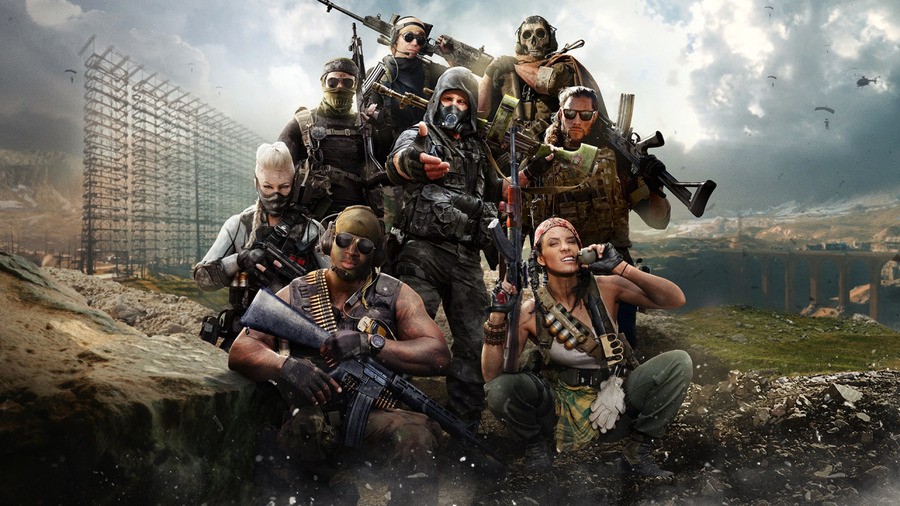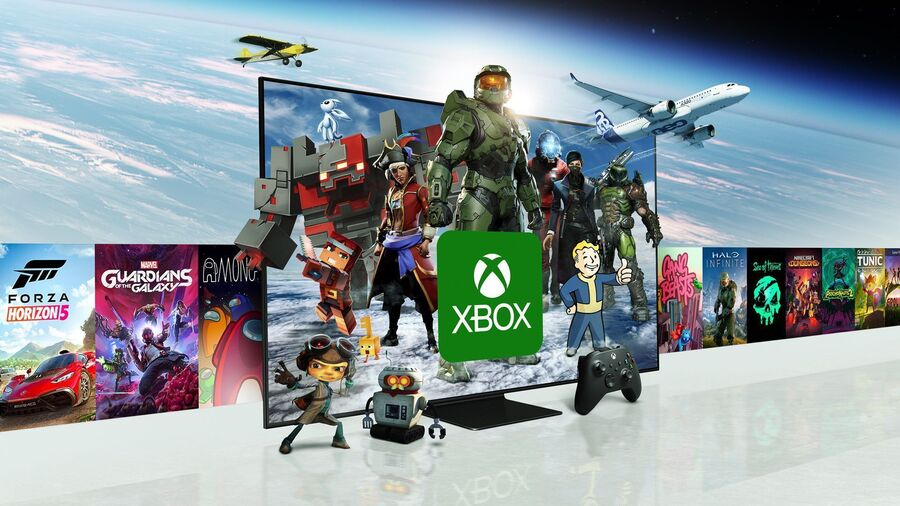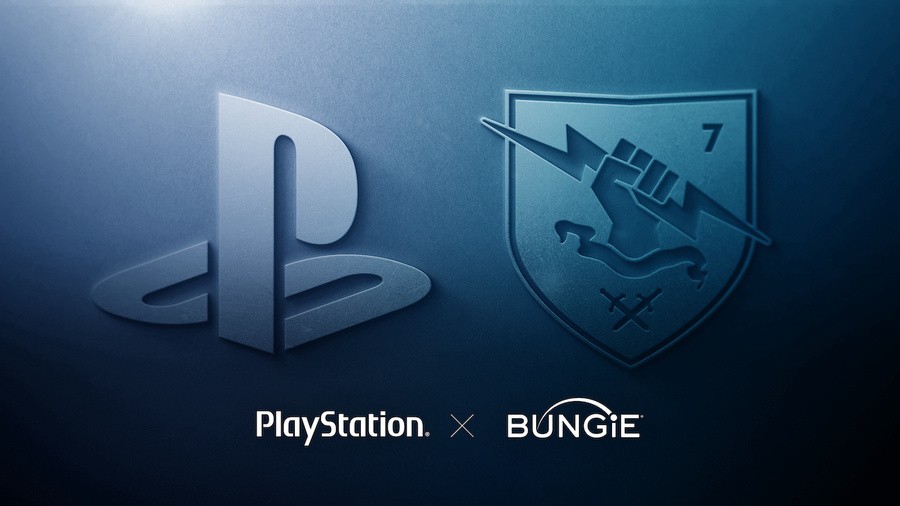
We seem to be caught in a whirlwind of gaming acquisition news as of late, from progress on the Xbox ActiBlizz deal, to Embracer buying a bunch of studios, to rumours about an EA deal, and even more besides. While these deals often bring out both supporters and sceptics in equal measure, we think that more merging in gaming doesn't necessarily have to be bad for the industry, it just depends where the buyouts take us.
Look at Xbox under the leadership of Phil Spencer. Sure, acquisitions like Bethesda will, in the short term, mean that some of their titles will switch platforms and be taken away from others, but that isn't really Xbox's long-term strategy, at least as we know it. Spencer has repeatedly said that he sees less console exclusives in the future, with Call of Duty seemingly being one series that'll remain multiplatform even after a big first-party acquisition.
Then, broadly speaking, Xbox is trying to create a more open eco-system. The company's push for cloud gaming is making Xbox as a brand more accessible; you can play Game Pass on smart TVs already! That's not to mention the brand's huge push in the PC market, where Xbox Game Studios and PC Game Pass are coming together to create a healthy platform on the PC marketplace; a marketplace that's open to a lot more players than any specific console.

It isn't just Xbox either. Sony recently acquired Bungie, who now sit under the PlayStation banner as a first-party studio. However, Sony's plan doesn't appear to be pushing for Bungie to create a new, PlayStation exclusive IP. Moreover, Sony seemingly brought Bungie on board to help build out the platform's live service lineup, with no plans to make Destiny an exclusive any time soon.
In fact, the push for live service as a whole should only help things become more platform inclusive. It just doesn't make sense to lock an online, live service game — especially when filled to the brim with microtransactions — to platform exclusivity. Xbox isn't doing that with Call of Duty, Sony isn't doing that with Destiny, and we'd expect many more examples to follow suit in the coming months and years.
There's always the chance that one such company could change the dynamic and keep things more locked down, you certainly couldn't count that out. However, cross-play is a fine example at why leading the way with smart and forward-thinking decisions can make others follow suit. Sony was vehemently against the idea of cross-play when Xbox was pushing it, yet at this stage, it's become an industry norm.

Then, there's the economic pressures of creating successful games. The industry is just about as healthy as ever, driven by a surge in gaming post-pandemic. However, the push for even bigger games with bigger budgets and more comprehensive post-launch plans means the gambles are even more risky, and the potential fallouts are even worse. Why would you jeopardise your chances of creating the next Fortnite, Destiny or Call of Duty by locking your big budget game to one platform? It's starting to make less and less sense as the years go on.
Look, we're not saying news of more acquisitions is particularly good for the industry, especially when it comes to smaller games taking more creative risks. But, with the way things are headed, we can't see the trend creating more exclusive-driven ecosystems than what we already have. If anything, gaming is already moving towards a more open future, where consistently high player counts are becoming the yardstick for success.
Are acquisitions a good thing for the industry or not? Leave your thoughts on the matter down below.





Comments 14
Xbox can make games multi-platform but still make xbox the best place to play them, by adding them to gamepass day one, making them have exclusive content, making them have early access so xbox players get them 1-2 weeks earlier than other consoles, or by making them a full timed exclusive by 6-12 months. They would still get sales from playstation/nintendo as well.
There’s definitely an increased push with PC gamepass…from the rebranding to its presence at gamescom this week…there seems to be a bigger focus on it.
And, of course we already know this gen we’ll be getting more live service games…there’s no way those will be restricted by platform, I would be shocked if Sonys were (if ever there’s going to be a start to Sonys day and date pc output it’s going to be via one of these apparent 10 live service games they’ve got in development)
And then there’s of course the elusive mobile pound they’ve all been after since the start of last gen - remember how every game had to have a mobile co op app
All the platforms will likely have a bigger presence on mobile this generation…it’s probably the main reason behind cloud gaming being so heavily invested in.
Be nice to have some exclusive sp story driven games this gen though wouldn’t it?
They’ll of course oversaturate the market with live services. And leave the majority of Innovation to be carried by the indie devs. But I really do hope they paid attention to the huge success of Elden ring and see there’s still a market there to reward AAA risks
I still 100% believe exclusive content though is going to be heavily invested in in some form or fashion for gamepass to grow…nothing I’ve seen shows any different
@LightningLeader
I think we need to assess PS and XB on an acquisition by acquisition basis.
Bungie is continuing its work on XB and PC. Sony hasn't been as clear as Microsoft but both are ambiguous about exclusives.
For example, Starfield is at least starting XB/PC exclusive. But they say the fans drive exclusivity. You can't tell me with a straight face that a Bethesda fan on PS would not love to see Starfield on PS.
Sony has a long history of exclusivity long before XB. But the new world order is making it tougher and tougher to stay exclusive. Games are more expensive now, services like GamePass and PS+ have thrown a curve ball, the fact games are more expensive to make plays a factor, and finally the rise of new models like free-to-play have also changed the dynamics. Exclusivity is just getting tougher and tougher to maintain.
@LightningLeader What exclusives did Xbox share with Playstation? Don't mention Minecraft as that was a deal done before MS acquired it. I'm not sure how the Minecraft spinoffs play into it. Outside of that, I don't know any Xbox exclusive they've shared with Sony post acquisitions.
Of course you know Sony ain't sharing. Not mad at either for not sharing even if COD becomes Xbox and PC exclusive. 70 billion is a whole lot of chicken for them not to have it exclusive.
Phil’s actually said we’d see less and less console exclusives as in they wont be tied to 1 device. AKA x cloud and gamepass . I don’t think we are gonna start seeing a ton of games in PlayStation or Nintendo as that doesn’t fit the gamepass eco system narrative.
Disagree with this 100%. The day we no longer have exclusive content is the day I know I’ll no longer purchase hardware for whatever specific brand that is. Xbox wants you to believe exclusivity isn’t necessary because they want to corner and monopolize the market and pretend to be “the good guy” in the process of it. It’s a trap.
As long as the industry doesn't just become only multiplayer live service games littered with microtransactions where the only objective is to kill the other team over and over ad nauseum just to unlock some obnoxiously stupid meme-based emote, I personally don't care what companies do with the IP's they own or intend to buy.
Still have my dream, one console all games day one no exclusives from every single studio.
As for Xbox and exclusives, time will tell and and I think Microsoft will see how things pan out over time and will do what is best for Microsoft, which makes sense and not what is best for gamers, business is business to be fair to all companies involved in the gaming industry.
There is lots of transactions and transitioning going on this year and I think it will continue.
But along with that there is a lot of smoke and mirrors and PR etc from all companies involved.
Me I don’t believe any of it, they will do what is best for them and business and say rubbish things to look good.
This last few months alone I have never heard such cooperate bull from so many.
Sony, with their game and console price increases and attempt at game pass.
Microsoft, with their console sales don’t matter, but mention sales when they have a good month and AAA exclusives delays and the in the next 12 months release schedule with not one date given.
Nintendo, not sure actually they been very quiet recently.
It’s really is a corporate suits PR playground of rubbish lately.
@Dezzy70 If anything, Nintendo and Capcom have been the heroes as of late. They’re not talking in corporate speak and more importantly keeping a fairly robust release schedule. Their optics are based on the simple premise of “We are making games” and that’s what we all want, isn’t it? If not for the NFT speak earlier this year, I’d say Square is a hero for gamers this year too
I still think the Activision acquisition was a protectionist stance from Microsoft to stop a non-industry entity like some Chinese company coming in and buying them instead thereby ensuring franchises like Call of Duty remain console-first rather than mobile-first.
Just look at the rumours today Apple and Amazon both allegedly tried to buy EA. I’m not convinced either of those players would make EA franchises exclusives to Luna or Apple Arcade (could you imagine the fallout if they did? 😂) but it’s still possible.
My expectation at this time:
If Xbox acquires anything as big as CoD or Minecraft, they won’t make it Xbox exclusive. I can’t think what on the world they could acquire that would be that big other than Fortnite or EA Sports games, though.
That said, even on that interview, Phil was very careful about talking of the future and how things can change. It’s very likely if Xbox managed to gain enough international momentum to outsel the PS5 2 to 1, they would start considering future Minecraft and CoD games skipping PS5. I just doubt Xbox will ever get to that scale.
Either way I care little, I’ll get all those games in Game Pass and they wont ever leave, giving me all the time in the world to pick them up and play them instead of worrying about “is this a 3 month deal? 6 months? A year?”
I do wonder whether or not they count the 'Cloud' as a Platform. Obviously with the Cloud, they can literally offer gaming on ANY platform from Mobiles, TV's etc to Consoles and PC's. That's all 'physical' platforms so would be 'Multi-platform'.
I can't see MS splitting up Active ONLINE Communities - as we have seen with games like Minecraft, Elder Scrolls Online, Fallout 76 etc and games like CoD do have an existing 'big' online community. Those games will be 'sold' on PS (and XB/PC too) but also going to be on Game Pass, growing the community on devices the game would never be ported to.
I'm sure that Studio's will be 'encouraged' to make games, even if they are experimental, smaller team projects like Pentiment, that will be exclusive to 'Xbox'. Some existing IP's may well remain on Playstation where MS see's it benefits them and/or the 'online' communities.
They don't even need 'something' to give Xbox gamers 'more' - like earlier access to content, bonus cosmetics etc, don't have to 'claim' its 'best' on Xbox (because the PS5 should be 'better' than Series S), the 'big' advantage Xbox has is that its available day and date on Game Pass for 'free*' whilst on PS5, they have to pay standard Game prices.
(* Whilst I know Game Pass has a cost, the games are 'Free' to play. You are not paying $10+ just to access 1 game and can play 100's of games 'free' for that fee - inc 1st Party games day and date).
I'd argue though that Microsoft is a Multi-platform Publisher as all their games release on more than 1 platform day and date - PC, Console and/or Cloud. The cloud too allows for many platforms to play games they could never hope to offer so are MS games still 'exclusive' if everyone could play on devices they already have?
Leave A Comment
Hold on there, you need to login to post a comment...